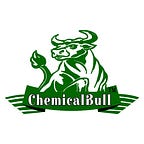Exploring Ethyl Cinnamate: Uses, Benefits, and Applications
Ethyl cinnamate is a compound that holds significant importance in various industries due to its versatile applications and unique properties. From fragrance and flavoring to pharmaceuticals and cosmetics, ethyl cinnamate plays a pivotal role. This blog delves into the intricacies of ethyl cinnamate, exploring its uses, benefits, and diverse applications.
What is Ethyl Cinnamate?
Ethyl cinnamate, chemically known as ethyl 3-phenylprop-2-enoate, is an ester derived from cinnamic acid and ethanol. It is naturally found in various plants, including cinnamon, strawberry, and balsam of Peru. This compound is characterized by its sweet, fruity aroma, reminiscent of cinnamon and strawberries, making it a popular choice in fragrance and flavor industries.
Uses and Applications
- Fragrance Industry: Ethyl cinnamate serves as a key ingredient in perfumes, colognes, and other fragrances due to its pleasant, fruity scent. It adds depth and sweetness to fragrances and is often used in floral, fruity, and oriental compositions.
- Flavoring Agent: In the food industry, ethyl cinnamate is utilized as a flavoring agent to impart a sweet, cinnamon-like taste to various products. It is commonly used in confectionery, bakery items, chewing gum, and beverages.
- Pharmaceuticals: Ethyl cinnamate exhibits antimicrobial properties, making it a valuable ingredient in pharmaceutical formulations. It is used in topical creams, ointments, and lotions for its potential antifungal and antibacterial effects.
- Cosmetics: Due to its pleasant aroma and potential skincare benefits, ethyl cinnamate is incorporated into cosmetic products such as creams, lotions, and soaps. It adds fragrance while potentially offering antioxidant and antimicrobial properties to skincare formulations.
- Industrial Applications: Ethyl cinnamate finds applications in various industrial processes, including the synthesis of other chemicals and as a solvent in different reactions. It is also used in the production of plasticizers and as a flavor enhancer in tobacco products.
Benefits and Advantages
- Pleasant Aroma: Ethyl cinnamate possesses a sweet, fruity scent reminiscent of cinnamon and strawberries, making it a desirable ingredient in fragrances, flavorings, and cosmetic products.
- Versatile Applications: Its diverse range of applications across industries such as fragrance, flavor, pharmaceuticals, cosmetics, and industrial processes highlights the versatility and utility of ethyl cinnamate.
- Potential Health Benefits: Studies suggest that ethyl cinnamate may offer certain health benefits, including antioxidant, antimicrobial, and anti-inflammatory properties. However, further research is needed to fully understand its therapeutic potential.
- Enhances Product Appeal: The addition of ethyl cinnamate to various products enhances their sensory appeal by imparting a pleasant aroma and flavor, thereby increasing consumer satisfaction and product acceptance.
Conclusion
Ethyl cinnamate stands out as a valuable compound with widespread applications across various industries. From its role in perfumes and flavorings to its potential health benefits in pharmaceuticals and cosmetics, ethyl cinnamate continues to contribute to product innovation and enhancement. As research on its properties and applications advances, the significance of ethyl cinnamate is likely to further expand, offering new opportunities and benefits to diverse industries.
